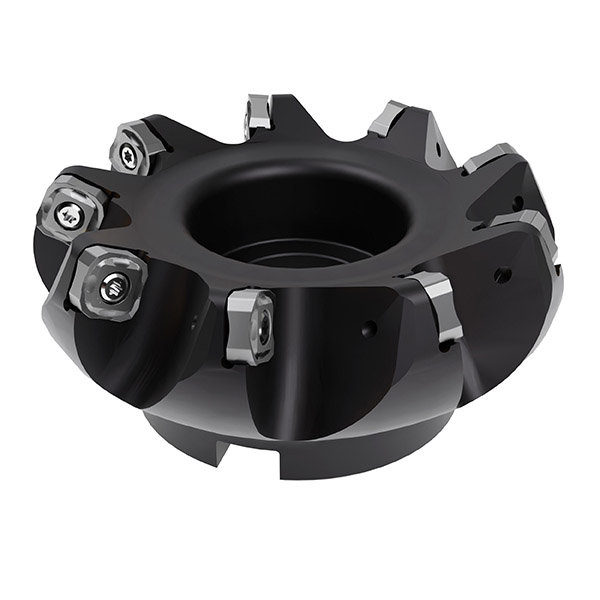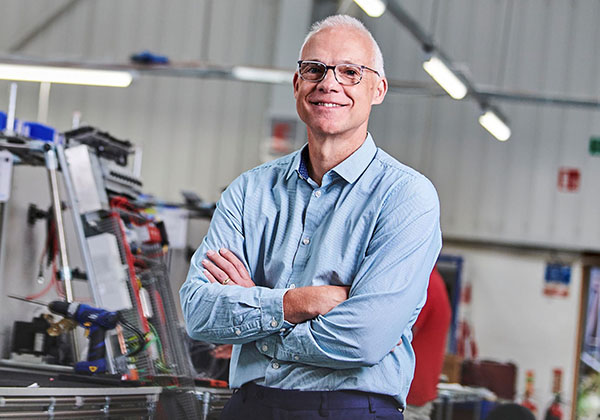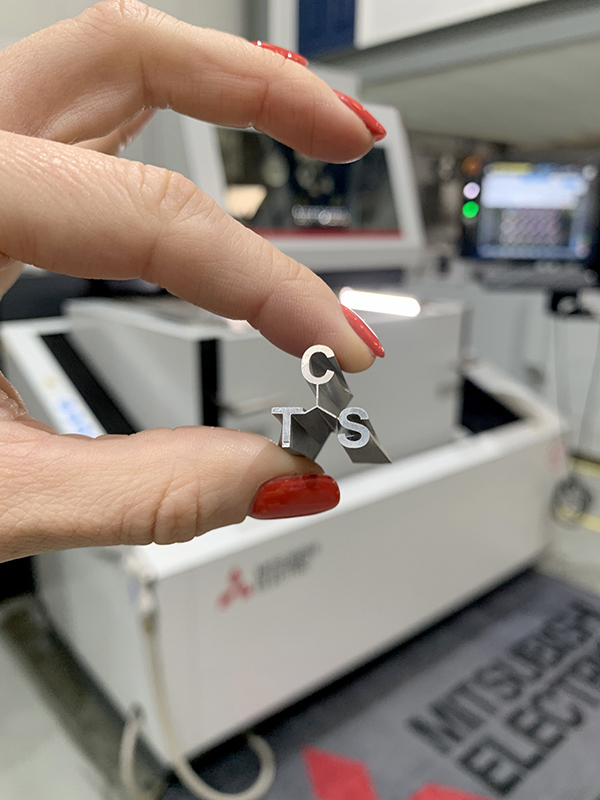
Since its inception in 1994, Carlow Toolmaking Services has specialised in manufacturing components, jigs and fixtures for the medical device, oral health care, pharmaceutical and automotive industries. To support its growth trajectory, the Carlow-based company has continually invested in Mitsubishi EDM technology from the Engineering Technology Group (ETG).
John Whelan, design engineer at Carlow Toolmaking Services, says: “We make jigs and fixtures for the medical industry and we have a contract tool room, so we do a little bit of everything. At present, we have parts here from an old steam engine that we are producing right through to high-end medical device equipment. Around 22 years ago we bought a Mitsubishi FX10 wire EDM machine and it is still running every day.”
With the company enjoying continued growth, it added a second Mitsubishi EDM machine five years ago (an MV1200S), which has since been followed by a Mitsubishi MV2400R. However, the global hiatus on much of the manufacturing industry has not halted progress at Carlow Toolmaking and, at the start of 2021, the company added a second Mitsubishi MV1200S wire EDM.
Whelan explains why the company keeps investing in Mitsubishi machine tools from ETG: “Obviously, the longevity has been proven with our first machine, plus the fact that we use the same software – the training curve was a lot easier by sticking with a Mitsubishi machine rather than switching to another brand.”
Pat Amond, director at Carlow Toolmaking Services, adds: “What it has helped us change at Carlow Toolmaking Services over the last couple of years is efficiency on the machines. We’re dealing with ETG and Mitsubishi, and this has enabled us to be more efficient and helped us to produce jobs easier and quicker, which is a major benefit to Carlow Toolmaking. With many of the higher quantity parts in manufacture at the moment, we are using the Mitsubishi wire eroder rather than our milling machines. Over the years we have discovered that we can stack parts and prepare them on the EDM and it is more efficient. Additionally, the machines can run overnight unmanned and this has given us an edge over our competitors; and our customers have benefited from that.”

Looking at the evolution of the Mitsubishi machines since the company bought its first wire EDM 22 years ago, Whelan says: “The interface has changed and it’s a lot slicker and the speed has improved. The stainless steel tank on the newer machines are much easier to clean – and they do the same job as they always did.”
The two MV1200S wire EDM machines and the MV2400R incorporate Mitsubishi’s Tubular Shaft Motor technology that delivers extra-smooth axis movements with drives positioned right in the centre of the moving weight. Highlighting this smooth axis movement and ultimate level of precision, the machines have glass linear scales right next to the workspace to assure users of maximum precision right from the start. In fact, Mitsubishi provides a 12-year positional warranty on all drives. Regarding the upgrade to the interface, the new 19-inch touchscreen control provides on-board CADCAM programming with complete import function for 2D, IGES and DXF files to streamline workflow. This capability is complemented by on-board maintenance tracking that monitors the use of consumables such as rollers and bearings. There is even multiple wire bobbin tracking that enables the operator to qualify how much wire remains.
When asked if the company is running the machines at their limits, Whelan says: “We tend to run overnight when we have the right type of work to go on the machines. We also cut a wide range of materials here, and anything conductive can be wire eroded. So, we can cut anything from graphite right through to PCD. At the moment, we’re cutting a bronze component that conventionally may have been milled, but it is much better to do this job on the wire EDM. We tend to do jobs slightly differently. We think around wire eroding rather than milling. As we design many jobs in-house, we design to suit our abilities. So, we very often design around wire erosion as it is more efficient.”

Adding to this, Amond says: “Over the past number of years, John and Conor in our design department have the Mitsubishi wire eroder in mind from the very beginning when they’re doing the initial design of components. This allows us the benefit of working overnight unmanned and our customers get the benefit because, from the very outset, there are no modifications. We provide a concept from the very beginning and then supply a finished product that is ready to go.”
Looking closer at the component modelling and the difference between the oldest FX10 Mitsubishi and the new MV1200R and MV2400R machines, Whelan says: “With the Mitsubishi FX10 machine, we had a capacity of 350 x 250 x 220mm in the X, Y and Z axes. When we purchased the first MV1200S, we effectively had the same capacity, but it was a much more efficient machine with a modern interface. Eventually, we needed extra Z-axis capacity so we moved up to the MV2400R. This machine has 600 x 400 x 305 mm in the X, Y and Z axes. That opened up a lot of doors for us with extra capacity in the Z axis that we could not cut on the other machines. Customers were asking us to machine larger parts and we had to turn work away because we didn’t have the capacity. The extra height in the Z axis has opened up a lot of opportunities.”
Looking at one specific component for gripping the bristles of toothbrushes during production, Whelan says: “Once we’ve done the CAD modelling, we create a 2D profile for this particular part that can be transferred directly into the machine for wire cutting. The tolerances are very tight on this component because the fibre on your toothbrush is very fine. With the Mitsubishi machine, it’s really easy to reproduce that part again.”
Amond concludes: “What’s changed for us here over the years at Carlow is the way that we do our work. We now do a lot more medical device and oral care work, which today accounts for around 70% of our business. Over the past six or seven years, we’ve changed our processes and it’s made us a lot more efficient, and both Carlow Toolmaking and our customers have benefitted from that. The service and support that we’ve received from ETG on the Mitsubishi machines have been second to none. Over the years, we’ve always gone back to ETG because they are so easy to contact and they will always help you out, whether it be on the service side or a programming issue or anything like that. The ETG team are always at the end of the phone and they will get back to us straight away to resolve any of our queries – no money can buy that kind of service.”
For further information
www.engtechgroup.com


























